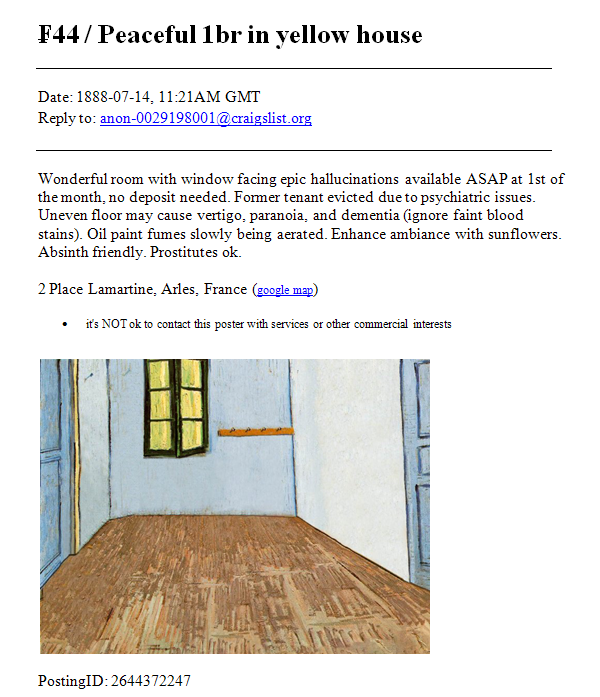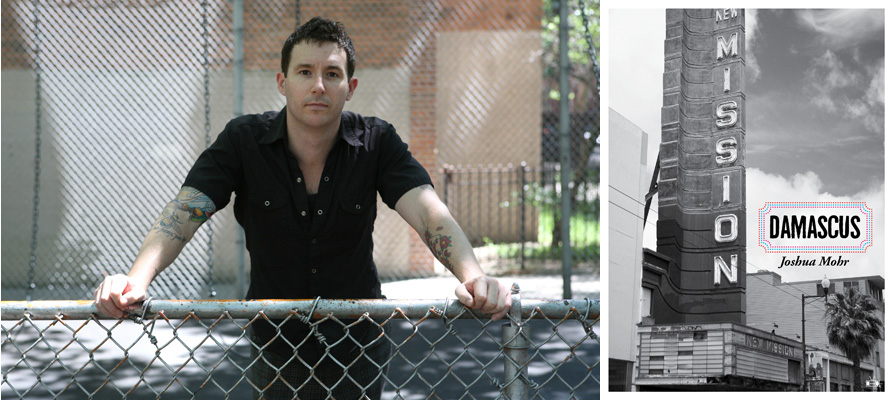How to End a Mystery
“Oh,” said the warden. “I see.” Then through the phone. “Let the fifth man go. He’s all right.”
LOOK AT WHAT USED TO BE YOUR ROSES. –Shirley Jackson
Blue Murder had never been shod. –Wilbur Daniel Steele
I often wish I had. Maybe she left me a note. –James M. Cain
And in the south, always. –Dennis Lehane
They made little splashes and the seagulls rose off the water and swooped at the splashes. –Raymond Chandler
“Well,” said the inspector, “if you are so sure, I’m inclined to agree. You’ve never made a mistake.”
But why kill him, Warren? What for? –Henry Slesar
“Gave her a good look at my face. My face is important to me.” –Joyce Carol Oates
The sheriff threw it open, and upon the floor, sprawling in a smear of blood, lay Simon Kilrail, with a dueling pistol in his hand. –Melville Davidson Post
Mr. Osterweil had gone up to the hundred-and-second floor and jumped from the observation deck. –Jerome Weidman
Comb it wet or dry? –Ring Lardner
Ellery grinned and began to chop down the cherry tree. -Ellery Queen
“You ought to have known I’d do it!” My voice sounded harsh and savage and like a stranger’s in my ears. “Didn’t I steal a crutch from a cripple?”
In the In
Last week, I had this awesome conversation with a grad student about theory. And he was like, Have you read this guy?, and I was like, Who?!
And so I come to my problem: What is going on in theory these days?
When you’re in school – in school like a student – you get this fab readings lists, from professors, from friends, from other students. You’re always in conversation, whether in the classroom or out of it. Either way, ideas are just around you. All you have to do is listen.
DAVID MITCHELL’S SOUL, AND OTHER VERBS
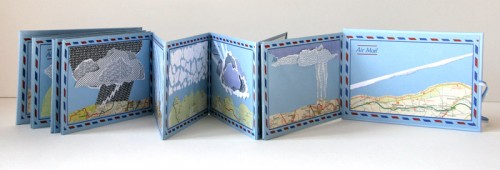 March of this year we were in the desert and, like Stephen Crane’s famous creature, we were bestial and squatting; maybe we were naked as well. It’s possible—we were on one drug or another, and memory is strange. I did not hold my heart in my hands but a shotgun. We had bought a box of old records from a flea market on the way down and were taking turns tossing them up in the air and making it rain black diamonds, fragments of song titles and run times. We had liquor, and music, and all five of David Mitchell’s novels—Ghostwritten, number9dream, Cloud Atlas, Black Swan Green, and The Thousand Autumns of Jacob de Zoet. I brought along the audiobook versions as well, as we were staying the night and planned on being too insensate before long to do any actual reading.
March of this year we were in the desert and, like Stephen Crane’s famous creature, we were bestial and squatting; maybe we were naked as well. It’s possible—we were on one drug or another, and memory is strange. I did not hold my heart in my hands but a shotgun. We had bought a box of old records from a flea market on the way down and were taking turns tossing them up in the air and making it rain black diamonds, fragments of song titles and run times. We had liquor, and music, and all five of David Mitchell’s novels—Ghostwritten, number9dream, Cloud Atlas, Black Swan Green, and The Thousand Autumns of Jacob de Zoet. I brought along the audiobook versions as well, as we were staying the night and planned on being too insensate before long to do any actual reading.
The Orange Bears by Kenneth Patchen
Just a good day for some Kenneth Patchen…
The Orange Bears
by Kenneth Patchen
The Orange bears with soft friendly eyes
Who played with me when I was ten,
Christ, before I’d left home they’d had
Their paws smashed in the rolls, their backs
Seared by hot slag, their soft trusting
Bellies kicked in, their tongues ripped
Out, and I went down through the woods
To the smelly crick with Whitman
In the Haldeman-Julius edition,
And I just sat there worrying my thumbnail
Into the cover—What did he know about
Orange bears with their coats all stunk up with soft coal
And the National Guard coming over
From Wheeling to stand in front of the millgates
With drawn bayonets jeering at the strikers?
I remember you would put daisies
On the windowsill at night and in
The morning they’d be so covered with soot
You couldn’t tell what they were anymore.
A hell of a fat chance my orange bears had!
Some of you know Innocente Fontana, so I thought this might be of interest: I wrote a piece for the Paris Review‘s website about my relationship with him, who he really is, and his extraordinary novel that was just republished.
The Savage Specifics of Such a Finale: A Conversation With Joshua Mohr
Joshua Mohr’s Damascus (Two Dollar Radio) is a tightly packed novel about the lost, losing, and broken people who frequent Damascus, a dive bar in San Francisco. The story is moving, bitterly charming, sometimes depressing, but always engaging. I talked to Joshua about his book, character driven writing, writing as a form of protest and much more.
I read Damascus as very character driven. It’s really the people and what you show us about their lives that create the narrative. Would you consider Damascus character driven?
Absolutely. Books don’t work if the people on the pages aren’t alive. It’s why writing a novel takes so long. You have to dig around in other psyches, other hearts and souls. The book isn’t going to be any good until your characters are the ones telling the story, and you’re just the poorly paid secretary scribbling it all down.
I teach in the MFA program at the University of San Francisco and when I talk characterization with my students, I emphasize the idea that actually the characters have to characterize themselves: the reader just sits back and watches the players stalk their sordid habitats. This kind of active characterization involves your reader in the story, too, making them put the pieces together for what each new scene means, how it contributes and complicates the action they’ve already observed. They become a kind of detective trying to compile an interpretation.
The Orange Suitcase
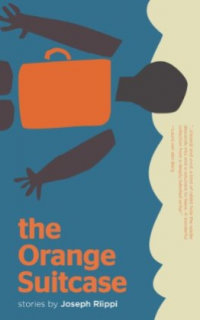 The Orange Suitcase
The Orange Suitcase
by Joseph Riippi
Ampersand Books, 2011
92 pages / $14.95 Buy from Ampersand Books
Rating: 7.0
Memories prop us up like skeletons. Each one exists autonomously, with its own root and biology, but put them together and you’ve got an emotional skeleton, something that helps shape who we are and the way we interact with the world around us. Over the course of the 34 short stories that fill The Orange Suitcase, author Joseph Riippi shines an x-ray on himself and examines a series of bone-like memories that are brief reflections on the formative experiences that make up his own skeleton.
October 11th, 2011 / 12:00 pm

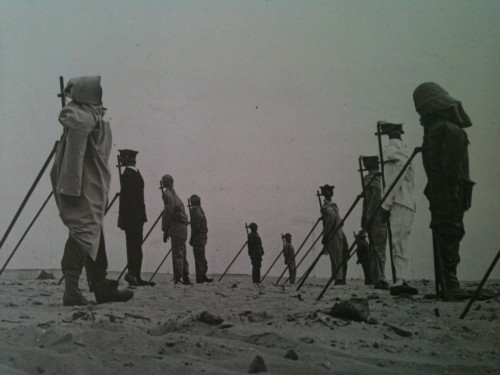

 Can writing be taught? Can writing be taught online? Is the Internet a valid place to workshop poetry?
Can writing be taught? Can writing be taught online? Is the Internet a valid place to workshop poetry?